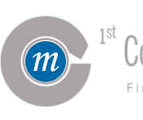Reverse Mortgage FAQ's
Get answers to frequent questions about the reverse mortgage loan program.
Whether you're researching the reverse mortgage for your parents, or you're doing the research for yourself, we've got some of the most important answers to very important questions concerning why a reverse mortgage can be a very smart financial move for you or your parents.
What is a reverse mortgage loan?
How is a reverse mortgage different from other mortgage loan products?
What are the income requirements for a reverse mortgage?
Are there limitations or restrictions on qualifying for a reverse mortgage?
Why should I consider taking out a reverse mortgage?
Does the lender own my home in a reverse mortgage?
If I take out a reverse mortgage, will I be able to refinance later?
When must I payoff a reverse mortgage?
What if I owe more on my reverse mortgage than my home is worth?
How does a reverse mortgage affect my estate?
How can I use the money I receive from a reverse mortgage?
Do I have options in how my equity is dispersed in a reverse mortgage?
Can I still qualify for a reverse mortgage if I have presently have a mortgage?
How does a second mortgage affect qualifying for a reverse mortgage?
My second home is paid off, can I get a reverse mortgage on that home as well?
What types of homes are eligible for a reverse mortgage?
Do I have choices in the type of reverse mortgage program I choose?
My home is in a living trust, can I still get a reverse mortgage?
What are the closing costs on a reverse mortgage?
How is the interest rate for a reverse mortgage calculated?
What are the tax liabilities associated with taking out a reverse mortgage?
How does a reverse mortgage affect my Social Security benefits?
What are the risks associated with taking out a reverse mortgage?
Can I apply for a reverse mortgage through you?
What is a reverse mortgage loan?
A reverse mortgage is designed to allow qualified senior citizens who own their own homes, to utilize the equity in their homes as tax-free income. The reverse mortgage program does not require you to sell your home, does not require you give up ownership, nor does it require a monthly mortgage payment. The loan only comes due when you permanently leave your home, you sell your home, or you pass away. Whenever considering a reverse mortgage, always consult with a tax professional and a financial advisor.
How is a reverse mortgage different from other mortgage loan products?
A reverse mortgage product is different in that it has no credit or income qualifying factors, does not look at your debt, it comes with age restrictions, and it has no monthly mortgage repayments to determine qualifying.
What are the income requirements for a reverse mortgage?
Qualifying for a reverse mortgage does not involve income calculations. You can earn $500.00 a month or $50,000.00 a month, and provided you have sufficient equity and meet all other qualifying requirements, you will be eligible for a reverse mortgage.
Are there limitations or restrictions on qualifying for a reverse mortgage?
Yes. First, you must be at least 62 years or older; You must own your home; The home must be your primary residence; You must have sufficient equity in your home; and, your home must meet the eligible property types.
Why should I consider taking out a reverse mortgage?
First and foremost, you have no monthly mortgage payment...ever. You can use your equity, up to the maximum amount allowed by the program, for whatever purpose you choose. Continue to live in your home. The money you take out is tax-free and does not affect your Social Security. You will be maximizing your financial independence and have more money to enjoy your retirement without the headaches of a monthly mortgage payment.
Does the lender own my home in a reverse mortgage?
No, like a traditional first mortgage, the lender holds a lien on the home that is due and payable when you sell the home, refinance the home, move out of the home, or pass away. Beyond that, the home remains deeded in your name.
If I take out a reverse mortgage, will I be able to refinance later?
Absolutely. You can refinance your home out of a reverse mortgage anytime you want, provided you meet lending and equity guidelines of the new mortgage company.
When must I payoff a reverse mortgage?
The reverse mortgage must be paid in full if the final surviving borrower passes away, sells the home, refinances the home, moves out of the home, fails to live in the home for 12 consecutive months, fails to pay the property taxes and insurance on the home, or fails to properly maintain the condition of the home.
What if I owe more on my reverse mortgage than my home is worth?
If you or your heirs/estate find yourself in a position of owing more on the home than it's worth upon loan maturity, you or your heirs/estate are not required to pay more than the home is worth. If you or your heirs wish to retain the property, then the financial institution must be paid in full.
How does a reverse mortgage affect my estate?
When you pass away, sell your home, or no longer use the home as your primary residence, you or your heirs/estate are required to repay the loan for any cash received, accrued interest, monthly fees, and any other accrued costs. Any remaining equity goes to you or your heirs/estate. With a reverse mortgage program, you or your estate are never required to pay more than what the home is worth in relation to fair market value. No other assets you hold, personally or within an estate, can be affected by your reverse mortgage. Please consult with a financial advisor or estate planner for more information.
How can I use the money I receive from a reverse mortgage?
The money you acquire as a result of a reverse mortgage can be used as you see fit. Just keep in mind that gifts to family members may come with tax liability to the recipient. Be sure to consult with a tax professional before making any gifts to children or grandchildren.
Do I have options in how my equity is dispersed in a reverse mortgage?
In most instances, yes. Funds from a reverse mortgage can be taken in lump sum or in monthly installments. With monthly installments, you can determine the number of months you want these payments made. Keep in mind, if using a variable interest rate, future amounts available to borrow can be reduced. The ideal scenario may be a simple lump sum payment; however, consult with a financial expert before making the decision on how to take your disbursement from a reverse mortgage.
Can I still qualify for a reverse mortgage if I have presently have a mortgage?
Yes, provided you have sufficient qualifying equity, you could still be eligible for a reverse mortgage; however, funds from the reverse mortgage must first go towards paying off any existing liens on the property. Any remaining funds would be dispersed according to your disbursement selection.
How does a second mortgage affect qualifying for a reverse mortgage?
A second mortgage only impacts whether or not a borrower has sufficient equity in the home to qualify for a reverse mortgage program. If you do, the second mortgage, along with any other liens, will be paid off through disbursement first. Then, the remaining funds will be dispersed according to your disbursement selection.
My second home is paid off, can I get a reverse mortgage on that home as well?
No, only qualifying primary residences are eligible for a reverse mortgage.
What types of homes are eligible for a reverse mortgage?
That depends on the reverse mortgage program. In general, single family homes, multi-family property (up to 4 unit) in which the borrower has permanent occupancy of at least one unit of the property, HUD-approved condo and town home communities, and some manufactured homes with land are eligible.
Do I have choices in the type of reverse mortgage program I choose?
There are two primary sources for reverse mortgages -- the HUD insured (HECM) program and the conventional comparable Fannie Mae Home Keeper program. The one you select will really depend upon the value of the home, type of home being used for the reverse mortgage program, and whether you're wanting to purchase a home using a reverse mortgage.
My home is in a living trust, can I still get a reverse mortgage?
In most instances, the answer to this question would be "Yes." However, a lender will need to review the living trust documents in full before making a final determination.
What are the closing costs on a reverse mortgage?
The closing costs associated with a reverse mortgage are no different than those experienced when taking out a new mortgage or refinancing an existing mortgage. With a reverse mortgage, these costs are added into the principal amount being financed.
How is the interest rate for a reverse mortgage calculated?
Interest rates offered in a reverse mortgage can be either fixed or adjustable. Rate availability is subject to market conditions.
What are the tax liabilities associated with taking out a reverse mortgage?
At present, reverse mortgage funds are not subject to income tax; however, due to frequent changes in tax code, please consult with a tax professional before taking out a reverse mortgage.
How does a reverse mortgage affect my Social Security benefits?
At present, funds received from a reverse mortgage are not considered income, but are considered a loan. Therefore, they will not have an impact on your ability to draw Social Security at the pre-disbursement levels. As Congress does enjoy changing statutes, please consult with a tax professional before taking out a reverse mortgage.
What are the risks with taking out a reverse mortgage?
The largest risks associated with taking out a reverse mortgage are the failure to maintain the property, along with the failure to pay property taxes and the required homeowner's insurance. Secondary risks include the risk of having to move out of the home due to health reasons, and if you really want to leave the home to your estate, the risk that your heirs may not have the financial means with which to payoff the reverse mortgage.
Can I apply for a reverse mortgage through you?
Absolutely. Use any of our inquiry methods located throughout the site's left-hand navigation menu.
|





















